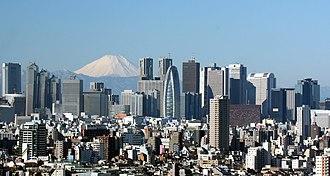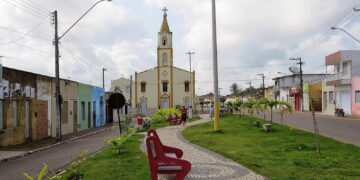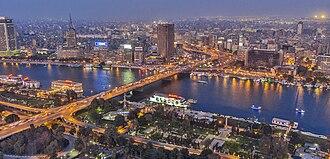Myanmar’s Military Extends Ceasefire Amid Earthquake Aftermath: A New Chapter for Humanitarian Relief and Reconstruction
In a notable move amid persistent regional instability, Myanmar’s military regime has announced an extension of its ceasefire following the catastrophic earthquake that struck the country last month. This decision represents a strategic attempt to ease tensions and enable more effective humanitarian interventions in areas devastated by the natural disaster. As international agencies and local groups evaluate both the earthquake’s impact and ongoing conflicts with ethnic armed factions, this ceasefire extension could be pivotal in advancing peace talks and accelerating recovery efforts across Myanmar’s most vulnerable regions.
Ceasefire Extension: Unlocking Humanitarian Access and Support
The military government’s choice to prolong the ceasefire signals a vital opportunity for relief organizations working tirelessly to reach communities affected by recent seismic events. Natural disasters like earthquakes severely disrupt access routes, complicating aid delivery of essentials such as food supplies, emergency shelter, healthcare services, and clean water. By halting hostilities temporarily, this truce facilitates safer passage for humanitarian convoys while offering displaced populations a chance to begin healing.
This pause in conflict also fosters an environment conducive to rebuilding social cohesion among internally displaced persons (IDPs) who have faced compounded hardships from both violence and natural calamities. However, despite these positive developments, significant obstacles remain:
- Bureaucratic Barriers: The junta’s administrative controls can delay or restrict aid distribution channels.
- Security Risks: Aid workers continue facing threats in volatile zones where sporadic clashes may still occur.
- Community Engagement: Involving local leaders is essential to build trust that ensures smoother coordination of relief efforts.
The Role of Political Stability in Post-Earthquake Recovery Efforts
A stable political climate is indispensable for sustainable reconstruction after disasters. The extended ceasefire offers a rare window during which government bodies alongside NGOs can plan infrastructure repairs more effectively without immediate threat of renewed fighting disrupting progress. Key benefits observed so far include:
- Eased Access for Aid Groups: Previously inaccessible regions are now reachable due to reduced hostilities.
- Civic Participation Boosted: Local residents show increased willingness to engage in rebuilding initiatives when security improves.
- Attraction of International Funding: Donor countries are more inclined to invest when political conditions appear less volatile.
The durability of these gains hinges on whether peace holds beyond this temporary cessation; any resurgence in conflict risks undermining reconstruction momentum significantly. Below is an overview summarizing current recovery projects amid evolving political dynamics:
| Recovery Initiative | Status | Description & Outlook |
|---|---|---|
| Shelter Rehabilitation | Active | Cohesive community involvement driving rapid progress |
| Aid Logistics & Distribution | Largely Operational | Smoother delivery routes improving supply chain efficiency |
| Sustainable Development Planning | Evolving Stage | < td > Dependent on continued peace maintenance
Navigating International Engagement: Strategies for Effective Crisis Response in Myanmar
Given Myanmar’s complex geopolitical landscape combined with urgent humanitarian needs post-earthquake , global actors must adopt comprehensive approaches tailored toward long-term stability . Recommended actions include :
- < strong > Amplify Humanitarian Assistance :< / strong > Prioritize delivering aid directly into hardest-hit zones , ensuring equitable resource allocation .< / li >
- < strong > Foster Collaborative Networks :< / strong > Strengthen partnerships between international NGOs , grassroots organizations , and community representatives .< / li >
- < strong > Facilitate Inclusive Dialogue :< / strong > Encourage communication channels bridging military authorities with opposition factions aiming at peaceful resolutions .< / li >
- < strong > Implement Transparent Oversight :< / strong > Develop monitoring frameworks preventing diversion or misuse of aid resources by armed groups or officials .< / li >
< emphasized text style = "font-weight:bold;" /> Additionally , diplomatic measures should focus on :
- < strong > Targeted Sanctions Enforcement :< / strong > Apply sanctions strategically against key military figures while minimizing harm toward civilians dependent on public services .
- < strong > Build Regional Coalitions :/ Form alliances among neighboring states exerting collective influence encouraging democratic reforms within Myanmar.
- Raise Global Awareness: Leverage media platforms highlighting human rights violations, generating international pressure.
- Empower Local Capacities: Invest resources into training programs enabling communities’ self-recovery capabilities.
nn
n Action Plann Expected Outcomen nIncrease Humanitarian AidnImproved health outcomes & safety netsnSupport Peace DialoguesnReduced conflict through negotiationnEnforce Targeted SanctionsnPressure leading towards behavioral change within leadershipnMobilize Regional AlliancesnUnified stance promoting democratic transition n Main Insights & Future Outlook
The extension granted by Myanmar’s ruling junta following last month’s devastating earthquake highlights the delicate balance between addressing urgent humanitarian needs while navigating entrenched political strife. Although this temporary halt offers critical breathing room facilitating relief operations and initial reconstruction phases, uncertainties linger regarding its longevity—and thus its ultimate impact on national reconciliation processes.
The unfolding situation demands vigilant observation from domestic stakeholders alongside robust engagement from international partners committed not only to immediate crisis mitigation but also fostering durable peacebuilding frameworks.
This juncture presents both challenges and opportunities; how effectively all parties capitalize upon it will shape Myanmar’s trajectory amidst overlapping crises wrought by nature’s fury coupled with decades-long internal conflicts.















